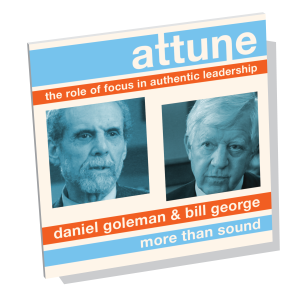David Bowie, the songwriter and actor whose work on records and in films inspired countless fans and artists across the globe, died at age 69 on Sunday following an 18-month battle with cancer, according to numerous reports.
 Regardless of the genre he was working in, Bowie was hard to categorize. But one kernel of wisdom business leaders can extract from his long and successful career is Bowie’s attitude toward role models and mentorship. Whereas most artists are notorious for concealing their artistic inspirations, Bowie openly paid tribute to his. And as an older artist–when he himself was a role model to the younger generation–Bowie took his mentoring duties very seriously.
Regardless of the genre he was working in, Bowie was hard to categorize. But one kernel of wisdom business leaders can extract from his long and successful career is Bowie’s attitude toward role models and mentorship. Whereas most artists are notorious for concealing their artistic inspirations, Bowie openly paid tribute to his. And as an older artist–when he himself was a role model to the younger generation–Bowie took his mentoring duties very seriously.
In business, the power of mentors or role models to influence young entrepreneurs is well known. As leadership expert Bill George points out in his book, Discover Your True North, Mark Zuckerberg has thrived in large part because of his network of mentors, including Don Graham, former CEO of the Washington Post Company; Bill Gates and Marc Andreessen. “People always ask, How does [Zuckerberg] have the wisdom of someone 20 years older?” says George. “The answer is, he sought out really good mentors, early on.” Once, for spiritual guidance, Zuckerberg visited a temple in India at the behest of another of his mentors: the late Steve Jobs.
As for Bowie’s role models, you can find them if you focus on a pivotal early album in his career: 1971’s Hunky Dory. The album includes tributes to artists Andy Warhol, Bob Dylan, and Lou Reed. The three songs appear back-to-back-to-back on side two of the record. Taken together, they form a straightforward statement about Bowie’s artistic influences.
Warhol’s influence on Bowie is obvious in all the big-picture ways: Like Warhol, Bowie worked in multiple genres, pushed boundaries, and strove to defy the easy labeling of his work. More explicitly, Bowie made no secret of his admiration for the Velvet Underground (VU), a band Warhol managed and marketed. In 1972, Bowie co-produced Transformer, the second album by Reed, who was, of course, the Velvet Underground’s lead singer. Bowie also performed many a VU song in concert.
When it comes to Dylan, Bowie once told Melody Maker that the tribute song was his way of taking the rock leadership torch from Dylan. The song “laid out what I wanted to do in rock. It was at that period that I said, ‘Okay (Dylan) if you don’t want to do it, I will.’ I saw that leadership void. Even though the song isn’t one of the most important on the album, it represented for me what the album was all about. If there wasn’t someone who was going to use rock ‘n’ roll, then I’d do it.”
He did it, all right. He kept making great records for the next forty-plus years. And as the years went by, he himself became one of rock’s preeminent role models and elder statesmen. Just a few years ago, Trent Reznor, a legendary musician in his own right, told Rolling Stone that Bowie had helped to mentor him during a time of addiction. “I was nearing the peak of my addiction, and his role to me was kind of mentor, big brother, friend, and also he’d give me kind of shamanish advice,” Reznor noted.
Among the numerous things worth remembering about Bowie is that he lived a long life, especially by rock ‘n’ roll standards. The history of the modern-day music industry is filled with too many sad examples of stars who ended their own lives at a young age, for one reason or another. Bowie endured, and his staggering life’s work as an artist ensures that he always will.
This article was originally posted to Inc.com on 1/11/16

 leadership. You need a different kind of focus to manage yourself, others, and the greater systems around you.
leadership. You need a different kind of focus to manage yourself, others, and the greater systems around you. In the classic
In the classic